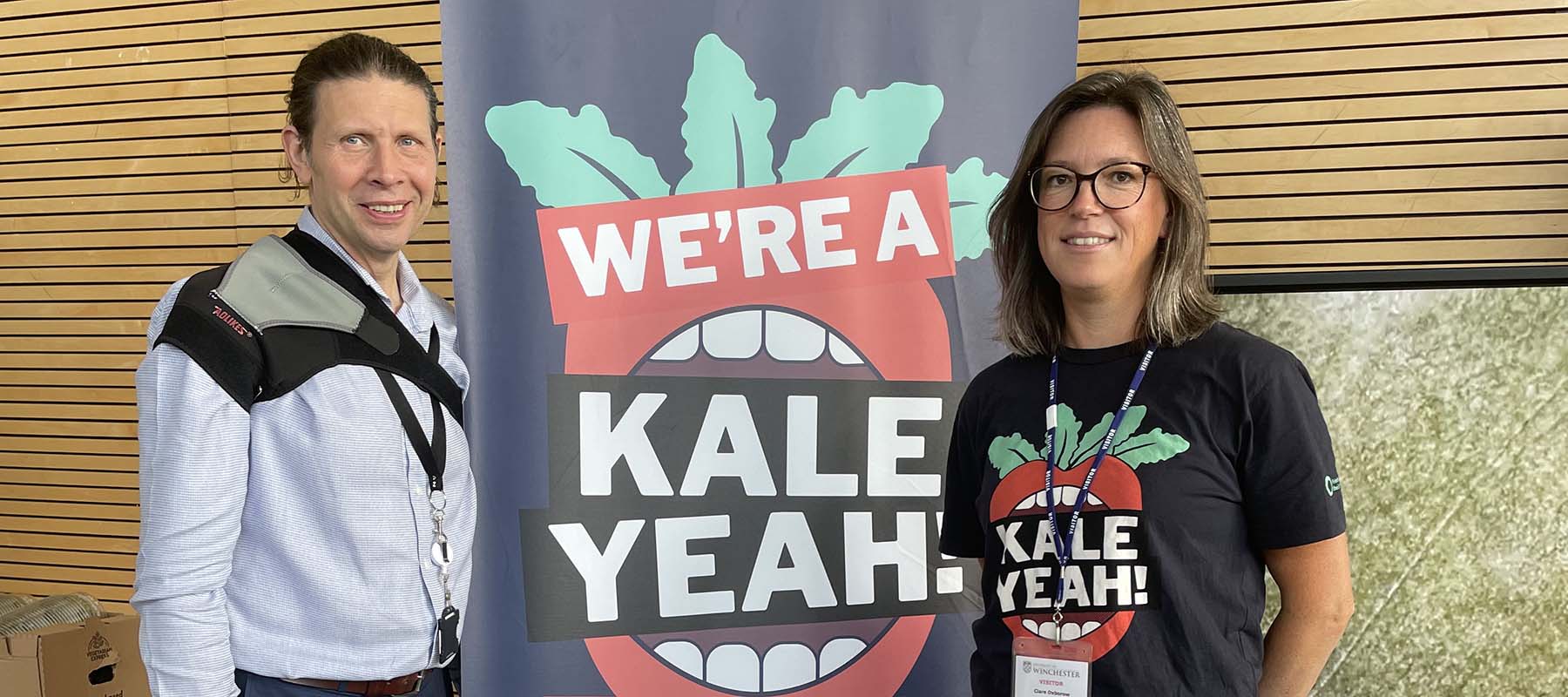
The University of Winchester is one of the first higher education institutions in the country to sign up to a new Friends of the Earth accreditation scheme, which aims to motivate university caterers to help fight climate and nature breakdown.
Kale Yeah! Kitchens, which is launching in October, is encouraging caterers to make their menus more sustainable by serving less and higher welfare meat, dairy and fish and offering more tasty plant-based options. The University of Winchester is one of seven universities joining the initial launch.
By becoming a Kale Yeah! Kitchen, caterers can help to reduce the amount of meat and dairy eaten on campus in line with targets set out by government advisors, the Committee on Climate Change (CCC). The CCC say consumption of meat and dairy must fall by 20 per cent by 2030, and 35 per cent by 2050 in order to help prevent catastrophic climate change.
In reaching the higher levels of the CCC targets, caterers can ensure they are in line with Friends of the Earth and the Eating Better Alliance's more ambitious target of a 50 per cent reduction in the amount of meat and dairy eaten and produced in the UK by 2030, which is needed to prevent the worst impacts of climate change.
"The University of Winchester is already a national leader in sustainable and ethical catering. Our Catering team have spent the last four years monitoring CO2 emissions, so we recognise the importance of this great initiative from Friends of the Earth," said Dave Morton, Catering Operations Manager at the University of Winchester.
"Reducing overall levels of meat and dairy consumption will be a key factor in helping to reduce carbon emissions and support action on climate change. The Kale Yeah! Kitchens' approach is a great way to not only incentivise meat eaters and flexitarians to reduce their intake, but also educate and inform them at the same time."
Since establishing the 'We cater for LIFE' ethos in 2010, sustainable food initiatives introduced at the University of Winchester include: the removal of plastic cutlery and plastic bottles of water from campus catering outlets; the introduction of a deposit scheme for reusable takeaway cups and containers; a sustainable procurement policy for food and drink, and food waste is sent for anaerobic digestion and waste cooking oil is turned into bio-diesel.
Friends of the Earth worked with several member universities of The University Caterer's Organisation (TUCO), who were instrumental in shaping the scheme. By committing to promote healthier, sustainable eating, participating caterers will have to alter their procurement and menus, and employ 'nudges' to inspire cultural, behavioural and attitudinal changes to the way we eat.
The seven universities joining the initial launch are: Anglia Ruskin; Bristol; Chester; Edinburgh Napier, Portsmouth, Winchester, and University College London. Other universities are invited to join and grow the movement over the academic year.
Clare Oxborrow, senior sustainability analyst at Friends of the Earth, said: "The Kale Yeah! Kitchens programme is so exciting because it comes at a moment where people want to do their best by the planet, not least hungry, climate conscious students. By joining the scheme, university caterers can make impactful, yet simple changes to their menus and sourcing, enabling thousands of students to access sustainable, healthy and delicious food."
Photo: David Morton and Claire Oxborrow launch the Kale Yeah! Kitchens initiative at the University of Winchester.
Press Office | +44 (0) 1962 827678 | press@winchester.ac.uk | www.twitter.com/_UoWNews
Back to media centre